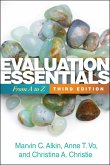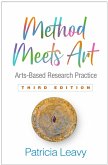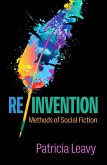W. Paul Vogt, PhD, until his death in 2016, was Emeritus Professor of Research Methods and Evaluation at Illinois State University, where he received both teaching and research awards. Dr. Vogt's areas of specialization included research design and data analysis, with particular emphasis on combining qualitative, quantitative, and graphic approaches. His books include Selecting the Right Analyses for Your Data and When to Use What Research Design.
Dianne C. Gardner, PhD, is Associate Professor of Educational Administration at Illinois State University. Dr. Gardner's research interests include assessment, organizational development, program evaluation, P20 systems, and qualitative research methodology.
Lynne M. Haeffele, PhD, is Senior Research Associate in the Center for the Study of Education Policy at Illinois State University. Dr. Haeffele's research interests include combining research designs, applying research findings to policy and practice, program evaluation, and the topical areas of college readiness, organizational performance, and school-university partnerships.
General Introduction: Design, Sampling, and Ethics I. Research Questions
and Designs What Is the Role of Theory in Research Questions and Designs?
1. When to Use Survey Designs When Are Surveys Likely to Be a Wise Design
Choice? When Should You Use Which Mode of Administering Your Survey? What
Design Should You Use to Study Change over Time? What Question Formats Can
You Use in a Survey Design? Conclusion on Survey Designs: So Many
Questions, So Little Time 2. When to Use Interview Designs Comparing
Interviews with Surveys, Conclusion on Interview Designs in General,
Specific Interview Types, Approaches, and Procedures Conclusion 3. When to
Use Experimental Designs What's Wrong with Gold-Standard Thinking? When Is
an RCT a Good Option? When Is an Experimental Design a Good Option for Your
Research? When Should You Use the Basic Types of Experimental Design?
General Conclusion on When to Use Experimental Designs 4. When to Use
Naturalistic and Participant Observational Designs Overview of
Observational Designs, When Is Observation a Good Design Choice? Further
Distinguishing between Naturalistic and Participant Observational Designs
When Should You Use a Naturalistic Observational Design? When Should You
Use Participant Observational Designs? Conclusion: Characteristics of All
Observational Designs 5. When to Use Archival Designs: Literature Reviews
and Secondary Analyses What Kinds of Archival Data Are Available for
Researchers? When Should You Collect and Use Preexisting Data Rather Than
Produce Your Own? Types of Archival Research Database Archives,
Organizational Records, Textual Studies of Documents, New Media, Including
Internet Sources, Conclusion 6. When to Use Combined Research Designs
Simple versus Multipart Research Questions When to Combine Research
Designs, Types and Qualities of Combined Designs, Logistical Considerations
in Combined Research Designs, Conclusion and Summary II. Sampling,
Selection, and Recruitment 7. Sampling for Surveys Probability Samples
Nonprobability Samples, When Should You Try to Improve Response Rates? How
Big Should Your Sample Be? Conclusion 8. Identifying and Recruiting People
for Interviews How Interview Strategies Are Shaped by Research Questions,
Making Basic Decisions about Interview Sampling, Conclusions on Selecting
People to Interview 9. Sampling, Recruiting, and Assigning Participants in
Experiments Randomized Controlled Trials, Alternatives to RCTs, Controlling
for Covariates, Conclusion: Sampling, Recruiting, and Assigning Cases in
Experiments 10. Searching and Sampling for Observations Overview of
Searching and Sampling Concerns in Observational Research, Appropriateness
and Relevance of the Sample, Accessing Observation Sites, Decisions
Influenced by Resources and Other Practical Considerations, Four Basic
Sampling Decisions, Sampling and the Five Types of Research Questions,
Conclusion and Summary 11. Sampling from Archival Sources When Do You
Search and When Do You Sample? Sampling Research Literature to Build Upon
and Synthesize It, Database Archives, Organizational Records, Textual
Studies of Documents.









